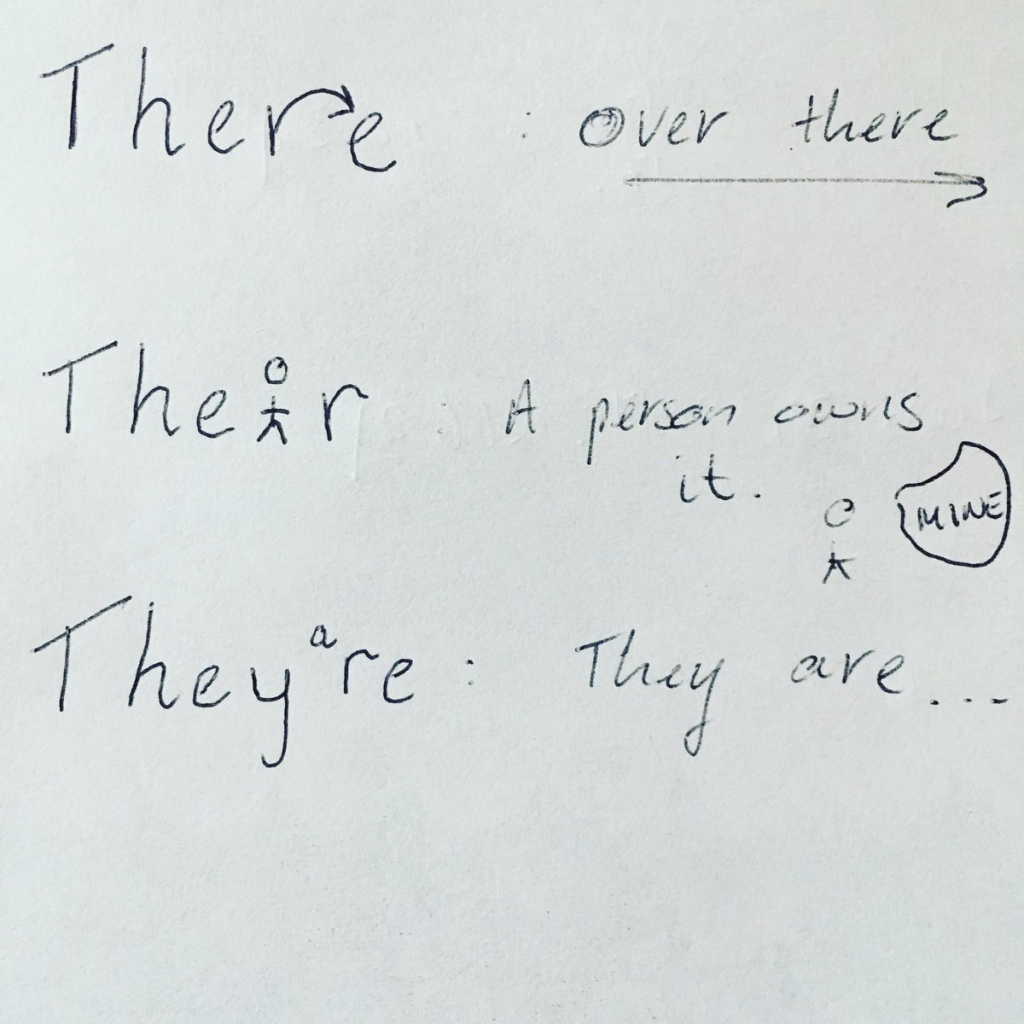Vocabulary Mistakes
I’ve been proofreading a pretty wide variety of material lately—master’s dissertations, personal letters to family, freshman film class essays, presentation notes and slides, white papers for businesses, formal proposals, and book manuscripts. These arrive in my inbox at varying degrees of “finished.” You can usually tell when someone has already taken the time to proofread their document before they share it with me for my final proofread. That doesn’t mean it’s perfect, though!
Even in “proofed and polished” documents, I will usually find errors in simple vocabulary. Sometimes, it’s pretty obvious that auto-correct got the best of someone since it says “bacon” instead of “become” in the middle of a sentence about their goals for after graduate school. Another common one is typos, which might mean that there’s an extra space or extra letter or a preposition was skipped. The most common mistakes, however, are homophones.
Frequent Fliers
Do you remember what a homophone is? Homophones are words that have the same (or almost the same) pronunciation, but have different meanings and different spellings. A fairly common one that you’re probably familiar with is there vs. their vs. they’re. It kind of looks bad if you mess that up, but how do you avoid it? Maybe you’ve seen this graphic that helps you remember which one to use:

Or, if you have this one nailed down, here’s a list of ten other common errors that I’ve come across.
Homophones and Other Common Errors
Here are a few common homophones, and a couple other types of errors, that I see misused quite often. Do any of these trip you up?
- Accept vs. except
- Accept: I accept the roses that the stranger hands me.
- Except: He is smiling, except something doesn’t seem to be quite right.
- Affect vs. effect
- Affect (produce an emotional response)
- The wacky Mole Day outfit affects the way that I see my teacher.
- Effect (cause and effect)
- The teacher’s wacky Mole Day outfit had the effect of distracting the entire class.
- Allude vs. elude
- Allude: I alluded to the fact that I knew his secret.
- Elude: I ran behind the building to elude my pursuers.
- Everyday vs. every day
- Everyday (adjective): Putting away my child’s shoes is an everyday activity.
- Every day: Every day at 3:00 pm, I sit down to have a cup of tea.
- Illicit vs. elicit
- Illicit: The journalist wrote a story about the illicit mafia activity in her town.
- Elicit: She asked questions of dangerous people, hoping to elicit exciting details in order to write a front-page story.
- Than vs. then
- Than (comparison): This piece of pie is larger than the other.
- Then (sequence): I ate the pie, then I had to confess that I had finished the whole thing.
- A lot vs. alot
- A lot: Using “alot” in a sentence is always incorrect, yet people do it a lot.
*”Alot” as a single word is not a word.
- Canceled vs. cancelled
- Canceled: “I canceled my flight to London due to COVID,” said the businessman from New York.
- Cancelled: “I cancelled my flight to New York due to COVID,” said the businesswoman from London.
*The double -l is the UK-approved spelling.
- Into vs. in to
- Into (movement/direction)
- I will get into trouble if I don’t tell the truth.
- In to (position)
- I put the kitten in the basket to hide it.
- Onto vs. on to
- Onto (preposition)
- She got onto the bus at the last second.
- On to (adverb + preposition)
- She needs to get on to the next phase of her project.
Keep these tips in mind the next time you’re preparing your own manuscript to send off to your editor.
What do you think?
What are some other tricky vocabulary pairs that trip you up? How do you keep them straight?

Dayna Betz is a full-time freelancer providing proofreading and editing services to help writers put their best foot forward. She also enjoys reading and writing book reviews. Head over to her site to learn more: https://betzliterary.com.



 We love helping your growing in your writing career.
We love helping your growing in your writing career.

No Comments